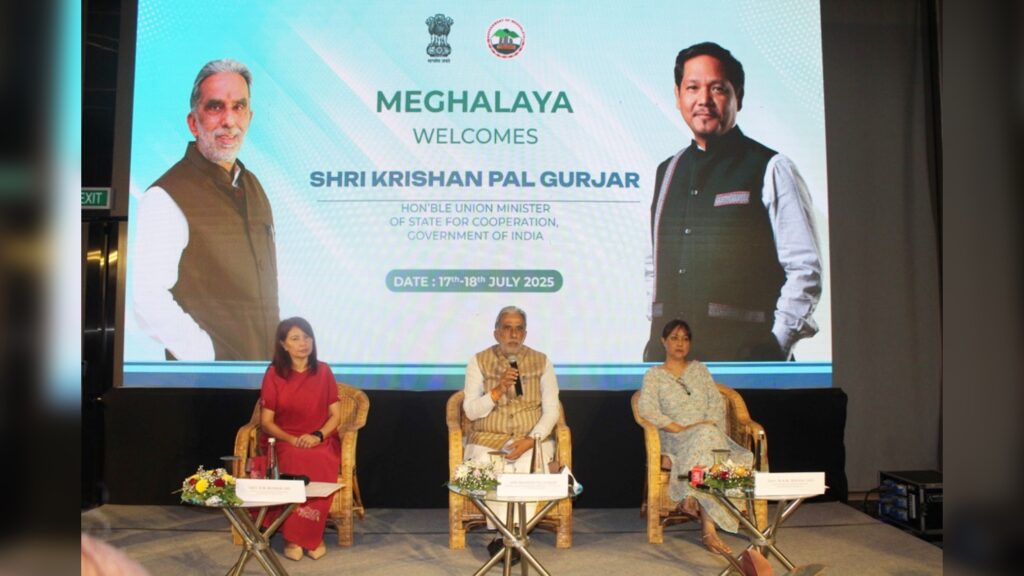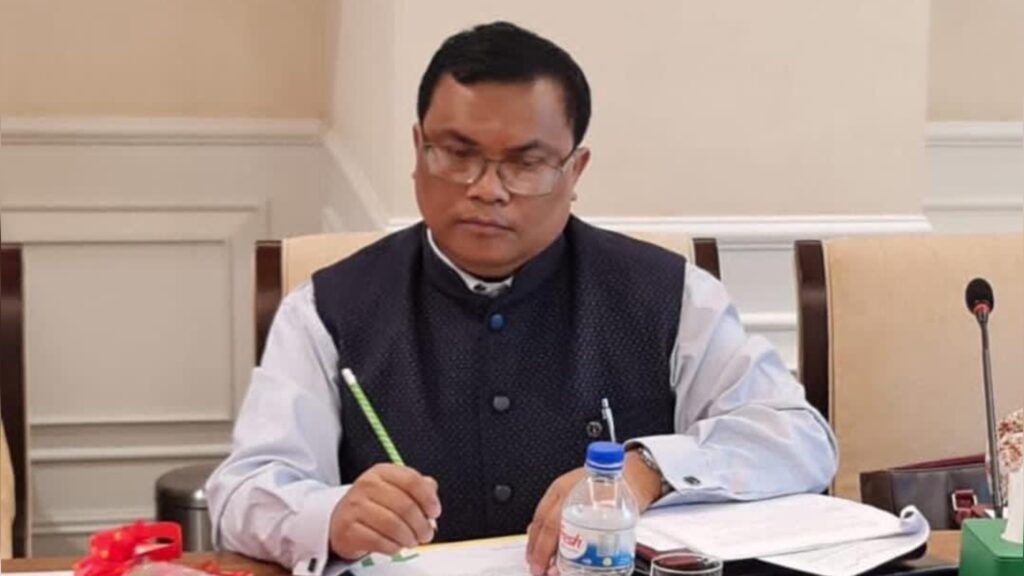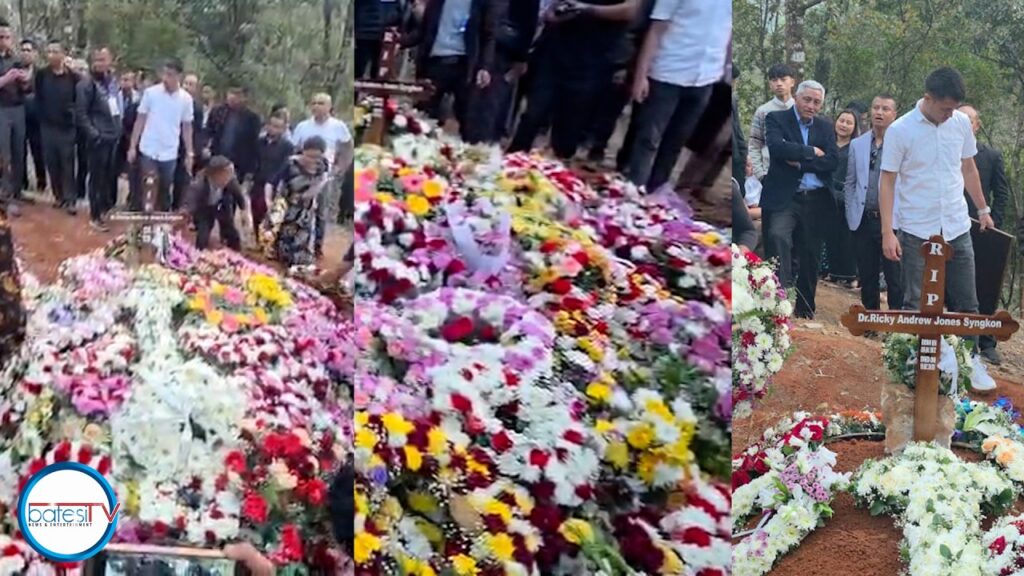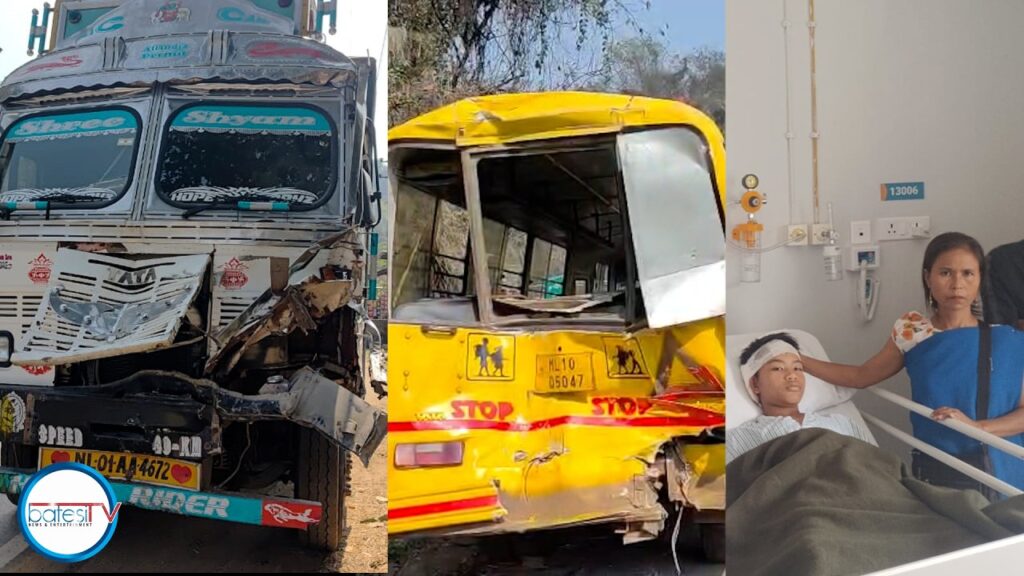Shillong, July 18 : Union Minister of State for Cooperation, Krishan Pal Gurjar, concluded his two-day official visit to Meghalaya today, as part of the Centre’s ongoing efforts to assess and accelerate developmental initiatives in the North East.
During his visit, the Minister engaged with senior state officials, district administrators, and various departments to review the implementation of centrally-sponsored schemes. He placed a strong emphasis on infrastructure, social empowerment, and livelihood-based programs.
Gurjar highlighted the Centre’s commitment to uplifting remote regions, stating, “The Government of India’s vision for a Viksit Bharat can only be achieved when every region, including remote and hilly areas like Meghalaya, progresses hand-in-hand with the rest of the country”. He stressed the importance of effective Centre-State coordination, digital monitoring, efficient fund utilization, and the timely and transparent execution of projects.
The Minister reviewed the progress of flagship schemes such as the Pradhan Mantri Awas Yojana (PMAY), the Lakhpati Didi initiative, Jal Jeevan Mission, and the strengthening of Primary Agricultural Credit Societies (PACS). He acknowledged the successful implementation of these programs and noted that grassroots feedback is crucial for policy evaluation and real-time course correction.
Addressing the gathering, Gurjar mentioned the establishment of Tribhuvan Sahkari University (TSU) on July 5th, under the guidance of Union Home Minister Amit Shah. He stated, “This is the first university in India dedicated to cooperative education. It will offer specialised training in cooperative management, finance, law, and rural development. The aim is to produce professionals who will lead the cooperative movement across the country”. TSU will be affiliated with universities across India and aims to integrate cooperative education into mainstream academics, especially targeting tribal and rural youth.
He further added that the Ministry of Cooperation has set a target to create two lakh new multipurpose PACS within two years, promoting economic self-reliance through community-driven models. Previously, PACS were largely limited to credit and loan functions but have now been transformed into multipurpose institutions supporting agriculture, dairy, fisheries, and rural enterprise.
On the concluding day of his visit, Gurjar also addressed the media, acknowledging challenges in land acquisition for critical infrastructure projects like airports and railways in Meghalaya due to hilly terrain, forest cover, and community ownership. He stated, “In a democracy, we must listen to people’s concerns. Environmental sensitivity and local participation must go hand-in-hand with development”.
The Minister commended the Meghalaya administration and civil society for the visible progress on the ground. He noted that under Prime Minister Modi’s leadership, the Northeast has seen a significant decline in violence and insurgency, stronger financial support from the Centre, and increased ministerial outreach over the years.
Gurjar called for the transformation of the Khasi Hills into a model of development, stating, “Let it be an example of what a truly developed India can look like. I am truly pleased to see the honest and dedicated efforts made by the administration here in Khasi Hills. It is visible on the ground, and I congratulate everyone involved”.








